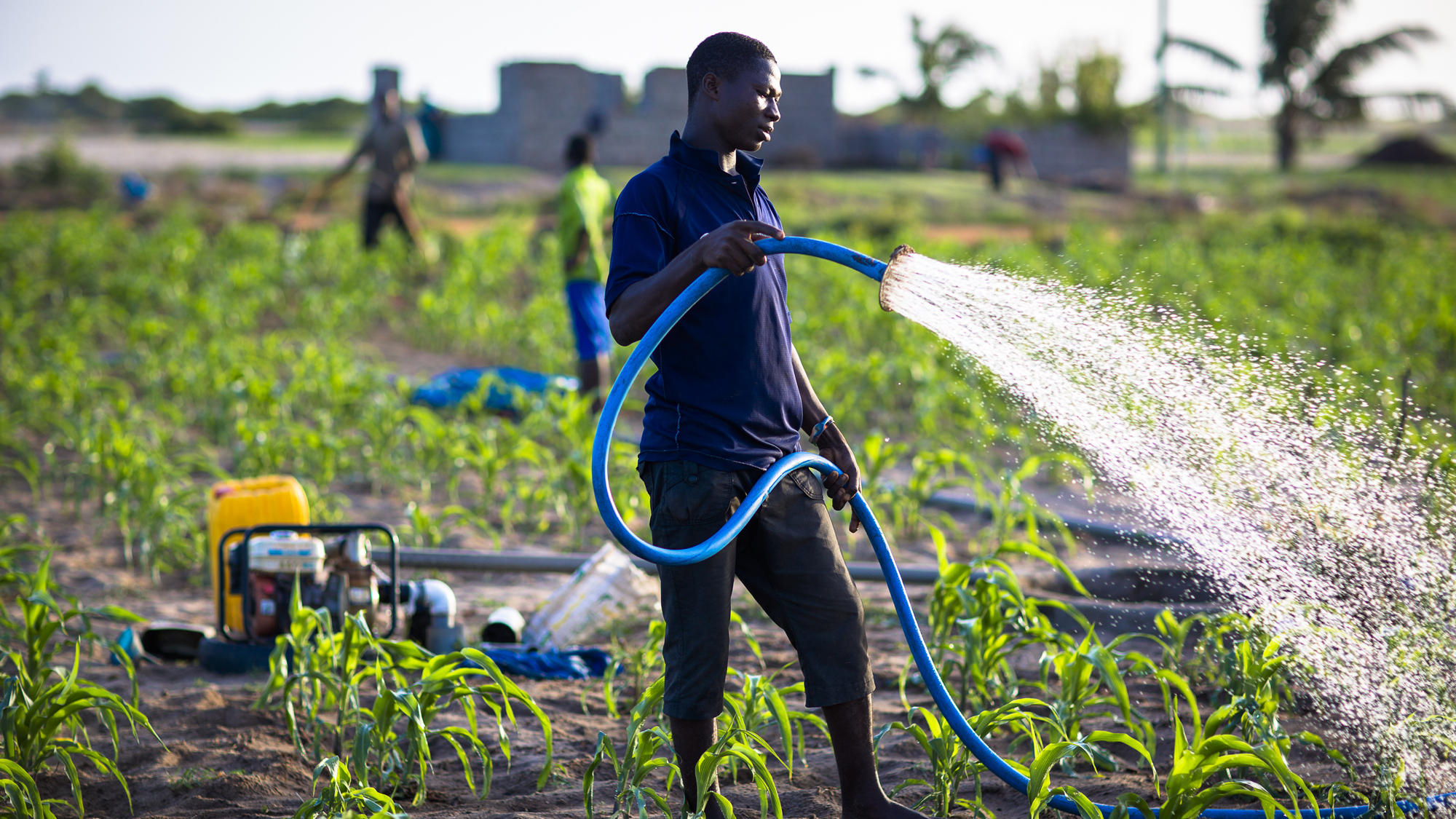The recently ended Roundtable Conference organized by Ishmael Yamson & Associates was themed “The Ghana we want”. An aspect of the discussions dwelt on 21st Century Agriculture, and how Agriculture can be developed at all fronts to attain the standards of the Ghana we want.
Speakers were Engineer Samuel Avaala from the Benso Oil Palm Plantation, and Mr Danquah Addo-Yobo from Yara Group, both are experts on the subject of agriculture. Discussions and submissions highlighted on means by which the entire framework of Ghana’s agriculture can be transformed to make the most of its comparative advantage.

Mr Avaala discussed unique traits which agricultural practices in 21st Century must have. He mentioned that agriculture must be conducted with precision and by science, whereby scientific knowledge is applied to all aspects. Farmlands must be properly tended, with farmers conducting regular soil and leaf analysis to determine nutrients that are lacking. Crude methods such as burning of farmlands to prepare them for cultivation, and indiscriminate shifting from one utilized farmland to another must be discouraged
Agriculture for the Literate and Corporate Professionals
21st Century Agriculture must be pleasant to attract professionals and entrepreneurs. He named a number of professionals who had entered into farming at Benso Plantation and the skills and precision they are utilizing to tend the farmlands. Farming should not be considered an area for illiterates, school drop outs, or individuals with no profession. Scientific agriculture can be widely practiced when more skilled professionals go into the area.
Pull Factors Required
Ghana needs pull factors in the rural areas in terms of facilities such as good schools, hospitals and good infrastructure to attract graduates and other professionals into full time farming. He mentioned that Benso Plantations has a school which is one of the best in its district, and a clinic with an ambulance. Such facilities offer assurance to prospective farmers that comfortable lifestyle can be maintained in rural settings

He identified other factors such as adopting the principle of economies of scale and green house farming to enhance agriculture production. Green house farming has been adopted by some farmers as a means to improve farm outputs in Ghana, but should be widely encouraged. Farm Right is an example of a young local farm practicing Green House farming.
Enhancing Productivity
Mr Addo-Yobo’s submission highlighted 21st Century agriculture in two aspects; Enhancing productivity and increasing agriculture value chain. His presentation on the current state of Ghana’s agriculture was rather a sorry state. He highlighted the under-utilization of lands, and wastage of agriculture produce, coupled with the billions of dollars spent on food importation to meet local demand.
He said “we are currently spending USD2.4 billion every year to import food. How much of this can be impactful in our local agric value chain?” He additionally mentioned that “yield from maize requires 5.5 tonnes per hectare; Ghanaian farms are on the average doing 2 tonnes per hectare”. Not forgetting fresh produce which are left to rot on farms during peak harvest periods. “37.5% of tomatoes rot and 45% of mangoes produced locally also go bad”. Irrespective of the massive potential, Ghana’s large plantations are negligible; “farmlands with a similar size to Benso Plantation represent about 2 to 5% of farming in Ghana. 80% of farmlands are in the region of 2 hectares”.
“The Ghana we want” is far from this dire situation. We are rather looking at a Ghana that provides avenues for citizens to harness opportunity especially in agric, in utilizing lands and other resources to adequately feed the nation. The Ghana we want is a nation that offers opportunity along the entire agriculture value chain in a manner that is beneficial to all stakeholders.

Technology, Research & Ready Market
Mr Addo-Yobo suggested measures which would enhance 21st century agriculture. Ghana’s agric sector is hungry for relevant and practical research geared towards improving productivity. In the area of technology he mentioned tractor services which could serve the needs of small holder farmers on hiring basis, to make the most of such facilities. Ready market is a key component of agric produce. Besides households, Ghana requires industrial markets to acquire the huge proportions of agric produce which goes waste during peak periods.
A properly developed value chain is the answer. He called for conscious partnerships to be created between farmers and markets from beginning of farming season. Such value chain partnerships create assurance of existence of business which would further encourage farmers to enhance productivity, thereby bridging food insufficiency gap.
He further mentioned that subsidies must be made available to farmers on transformative basis. For instance subsidies must be given based on output, which will compel farmers to enhance productivity to meet local demand and in effect reduce the food import bill.










